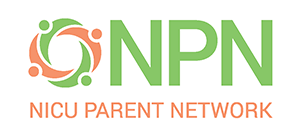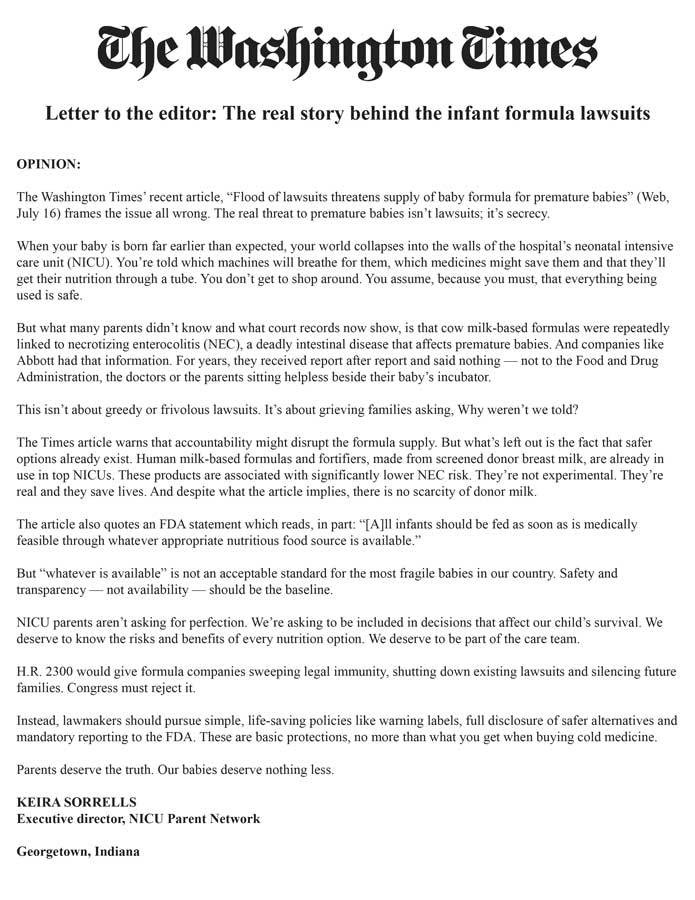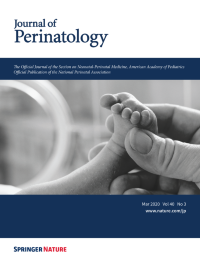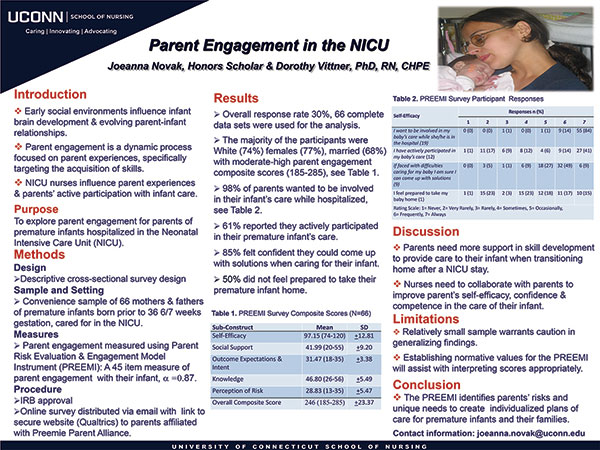Our Impact
Highlighting the Many Ways we Work with Industry
The NPN provides a platform to bring the collective voice of NICU families to the forefront. We are often asked to participate in studies, surveys, and focus groups that guide advocacy and care guidelines. Below are just some examples of how the NICU Parent Network is providing a superior standard of insight and enlightenment on topics related to Maternal Infant Health.
Washington Times: Letter to the Editor
When your baby is born too soon, every decision in the NICU feels overwhelming. Families and their care team work side by side, making critical decisions every day guided by the best information available.
What we have seen in testimony from some of the formula lawsuits is that companies failed to report safety concerns and even death linked to their products. This means life-saving choices have been made without all the facts.
We at NICU Parent Network are not anti-formula. We know doctors need every safe tool in their toolbox. What we are asking for is quite simple: transparency, accountability, and informed consent. Parents deserve to understand the risks and benefits of every nutrition option, and every baby deserves the safest possible start to life.
We do not believe a sweeping liability shield is the answer. We believe collaboration is the key to developing solutions that are truly family-centered.

Evaluation of a course for neonatal fellows on providing psychosocial support to NICU families
“The Culture of Research Communication in Neonatal Intensive Care Units: Key Stakeholder Perspectives”
“Quality of life”: parent and neonatologist perspectives
“NICU families were identified in two ways. First, Internet searches were conducted that generally identified active support or advocacy groups that specifically targeted NICU families. “Family” for the purpose of this survey was defined as “any individual who identified as a parent, guardian, or primary caregiver of a child who spent some time in the NICU”. Groups were defined as “active” if they had one or more posting online within the previous 3 months. The Preemie Parent Alliance, now the NICU Parent Network, was one of most significant contributors, distributing the survey via their multiple social media channels to the 37 member organizations under their umbrella. . . .”
Adams, S.Y., Tucker, R., Clark, M.A. et al. “Quality of life”: parent and neonatologist perspectives. J Perinatol 40, 1809–1820 (2020). https://doi.org/10.1038/s41372-020-0654-9





